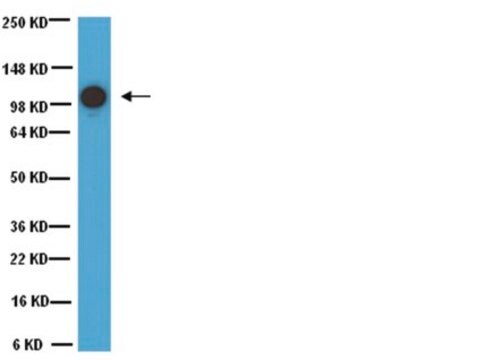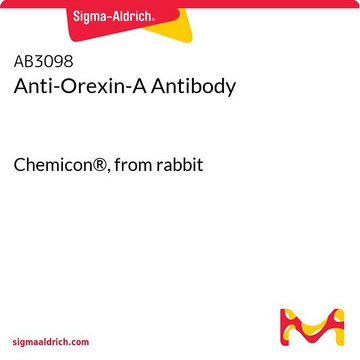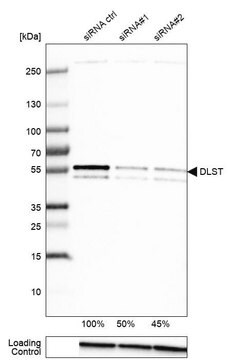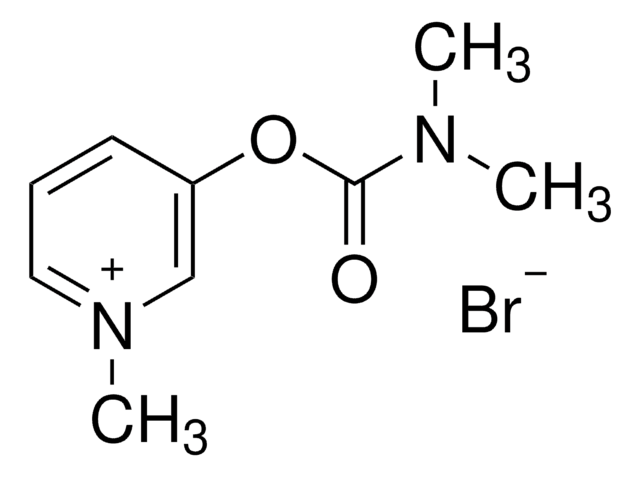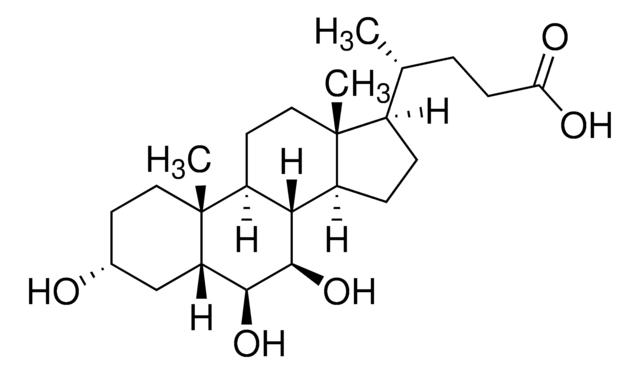MABC1709
Przeciwciało przeciw glikanom raka, klon mAB-A4
clone mAb-A4, from mouse
Synonim(y):
Glikany komórek nowotworowych
Zaloguj sięWyświetlanie cen organizacyjnych i kontraktowych
About This Item
Kod UNSPSC:
12352203
NACRES:
NA.41
Polecane produkty
pochodzenie biologiczne
mouse
klon
mAb-A4, monoclonal
reaktywność gatunkowa
human
metody
flow cytometry: suitable
immunohistochemistry: suitable
immunoprecipitation (IP): suitable
western blot: suitable
izotyp
IgMκ
temp. przechowywania
2-8°C
docelowa modyfikacja potranslacyjna
unmodified
Opis ogólny
Komórki nowotworowe zawierają charakterystyczne struktury glikanów na powierzchni komórek, a ich obecność na glikoproteinach lub glikolipidach może odgrywać funkcjonalną rolę w progresji nowotworu. Są one również ważnymi celami terapii przeciwnowotworowej. Mogą być one namierzane przez przeciwciała monoklonalne w celu wykrywania i interwencji. Wykazano, że klon mAb-A4 wiąże się specyficznie tylko z glikanami w komórkach raka piersi, jajnika, jąder, płuc, trzustki, kości i jelita cienkiego, ale nie z łagodnymi komórkami w tych tkankach. Dlatego może być użytecznym narzędziem do rozróżniania komórek złośliwych i łagodnych. Przeciwciało to celuje głównie w N-związane glikany i wiąże się z antygenem typu H I (Fuc-alfa1,2-Gal-beta1,3-GlcNAc), z wtórnym wiązaniem z LacNAc typu I. Wykazano, że usunięcie N-glikanów, ale nie kwasu sialowego, z antygenu przy użyciu PNGaseF znosi wiązanie tego przeciwciała. Antygeny te są również antygenami związanymi z pluripotencją na ludzkich embrionalnych komórkach macierzystych (hESC). Wykazano, że klon ten ma bezpośrednie działanie cytotoksyczne przeciwko hESC i komórkom raka jajnika SKOV3 i powoduje znaczne zmniejszenie ich żywotności. (Ref.: Liau, B., et al. (2017). Sci. Rep. 7; 14489; Choo, M., et al. (2017). J. Biol. Chem. 292(15); 6163-6176).
Specyficzność
Klon mAb-A4 wykrywa komórki raka jajnika i piersi oraz celuje w glikany H typu 1.
Immunogen
Żywe ludzkie zarodkowe komórki macierzyste HES-3.
Zastosowanie
Analiza immunoprecypitacji: A representative lot immunoprecipitated Carcinoma Glycans in Immunoprecipitation applications (Choo, M., et. al. (2017). J Biol Chem. 292(15):6163-6176).Immunohistochemistry Analysis: Reprezentatywna partia wykryła glikany raka w aplikacjach immunohistochemicznych (Choo, M., et. al. (2017). J Biol Chem. 292(15):6163-6176).Flow Cytometry Analysis: Reprezentatywna partia wykryła glikany raka w aplikacjach cytometrii przepływowej (Liau, B., et. al. (2017). Sci Rep. 7(1):14489; Choo, M., et. al. (2017). J Biol Chem. 292(15):6163-6176).Western Blotting Analysis: Reprezentatywna partia wykryła glikany raka w aplikacjach Western Blotting (Liau, B., et. al. (2017). Sci Rep. 7(1):14489; Choo, M., et. al. (2017). J Biol Chem. 292(15):6163-6176).
Jakość
Evaluated by Flow Cytometry in BT-474 human breast carcinoma cells.Flow Cytometry Analysis: 1 µg of this antibody detected Carcinoma Glycans in one million BT-474 human breast carcinoma cells.
Postać fizyczna
Oczyszczone mysie przeciwciało monoklonalne IgM w buforze zawierającym 0,1 M Tris-Glicyny (pH 7,4), 150 mM NaCl z 0,05% azydkiem sodu.
Format: Oczyszczony
Metoda oczyszczania: Oczyszczone białko G
Format: Oczyszczony
Metoda oczyszczania: Oczyszczone białko G
Przechowywanie i stabilność
Przechowywać przez 1 rok w temperaturze 2-8°C od daty otrzymania.
Inne uwagi
Stężenie: Należy zapoznać się z arkuszem danych dla konkretnej partii.
Oświadczenie o zrzeczeniu się odpowiedzialności
O ile nie określono inaczej w naszym katalogu lub innej dokumentacji firmy dołączonej do produktu(-ów), nasze produkty są przeznaczone wyłącznie do użytku badawczego i nie mogą być wykorzystywane do żadnych innych celów, w tym między innymi do nieautoryzowanych zastosowań komercyjnych, zastosowań diagnostycznych in vitro, zastosowań terapeutycznych ex vivo lub in vivo lub jakiegokolwiek rodzaju konsumpcji lub zastosowania u ludzi lub zwierząt.
Ta strona może zawierać tekst przetłumaczony maszynowo.
Certyfikaty analizy (CoA)
Poszukaj Certyfikaty analizy (CoA), wpisując numer partii/serii produktów. Numery serii i partii można znaleźć na etykiecie produktu po słowach „seria” lub „partia”.
Masz już ten produkt?
Dokumenty związane z niedawno zakupionymi produktami zostały zamieszczone w Bibliotece dokumentów.
Nasz zespół naukowców ma doświadczenie we wszystkich obszarach badań, w tym w naukach przyrodniczych, materiałoznawstwie, syntezie chemicznej, chromatografii, analityce i wielu innych dziedzinach.
Skontaktuj się z zespołem ds. pomocy technicznej